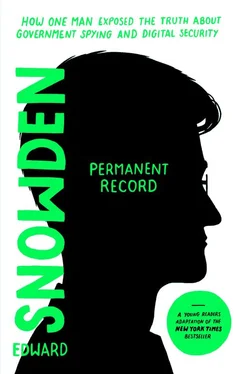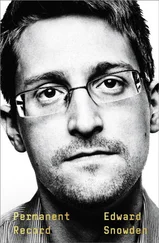Try to remember the biggest family event you’ve ever been to—maybe a family reunion. How many people were there? Around thirty, fifty? Though all of them together make up your family, you might not really have gotten the chance to know each and every individual member. Now think about how many people are in your school. How many of them are your friends, and how many others do you just know as acquaintances, and how many others do you simply recognize? It certainly stretches the boundaries of what you could say are all “your people,” but you may still feel a bond with them.
Nearly three thousand people died on 9/11. The events of that day left holes. Holes in families, holes in communities. Holes in the ground.
Now, consider this: Over one million people have been killed in the course of America’s response to the attacks.
The two decades since 9/11 have seen America self-destruct by way of secret policies, secret laws, secret courts, and secret wars, whose traumatizing impact—whose very existence—the US government has repeatedly classified, denied, disclaimed, and distorted. Having spent roughly half that period as an employee of the American Intelligence Community and roughly the other half in exile, I know better than most how often the agencies get things wrong. I know, too, how intelligence can be used for disinformation and propaganda against America’s enemies, but also against its allies and sometimes its own citizens. Whenever I try to understand how the last two decades happened, I return to that September—to that ground-zero day and its immediate aftermath.
I remember escaping the panicked crush of the spies fleeing Fort Meade just as the North Tower of the World Trade Center came down. Once on the highway, I tried to steer with one hand while pressing buttons with the other, calling family indiscriminately and never getting through. Finally, I managed to get in touch with my mother, who was working as a clerk for the federal courts in Baltimore.
Her voice scared me, and suddenly the only thing in the world that mattered to me was reassuring her.
“It’s okay. I’m headed off base,” I said. “Nobody’s in New York, right?”
“I don’t—I don’t know. I can’t get in touch with Gran.”
“Is Pop in Washington?”
“He could be in the Pentagon for all I know.”
The breath went out of me. By 2001, my grandfather had retired from the Coast Guard and was now a senior official in the FBI, serving as one of the heads of its aviation section. This meant that he spent plenty of time in plenty of federal buildings throughout DC.
Before I could say anything, my mother spoke again. “There’s someone on the other line. It might be Gran. I’ve got to go.”
She didn’t call me back. I tried her number endlessly but couldn’t get through, so I went home to wait, sitting in front of the blaring TV while I kept reloading news sites.
My mother’s drive back from Baltimore was a slog through crisis traffic. She arrived in tears, but we were among the lucky ones. Pop was safe.
The next time we saw Gran and Pop, there was a lot of talk—about Christmas plans, about New Year’s plans—but the Pentagon and the towers were never mentioned.
My father, by contrast, vividly recounted his 9/11 to me. He was at Coast Guard Headquarters when the World Trade Center towers were hit, and he and three of his fellow officers found a conference room with a screen so they could watch the news coverage. A young officer rushed past them down the hall and said, “They just bombed the Pentagon.” Met with expressions of disbelief, the young officer repeated, “I’m serious—they just bombed the Pentagon.” My father hustled over to a wall-length window that gave him a view across the Potomac of about two-fifths of the Pentagon and swirling clouds of thick black smoke.
The more that my father related this memory, the more intrigued I became by the line They just bombed the Pentagon . Every time he said it, I recall thinking, “They”? Who were “they”?
After 9/11, America immediately divided the world into “us” and “them,” and everyone was either with us or against us, as President George W. Bush remarked while the rubble was still smoldering. People in my neighborhood put up new American flags, as if to show which side they’d chosen. Others stuffed red, white, and blue Dixie cups through every chain-link fence on every overpass of every highway between my mother’s home and my father’s to spell out phrases like UNITED WE STAND and STAND TOGETHER NEVER FORGET.
Nearly a hundred thousand spies returned to work with the knowledge that they’d failed at their primary job, which was protecting America. They had the same anger as everybody else, but they also felt guilt. September 12 was the first day of a new era, which America faced with a unified resolve, strengthened by a revived sense of patriotism and the goodwill and sympathy of the world. In retrospect, my country could have done so much with this opportunity. It could have used this rare moment of solidarity to reinforce democratic values in the now-connected global public.
Instead, it went to war.
The greatest regret of my life is my reflexive, unquestioning support for that decision. I accepted all the claims reported by the media as facts, and I repeated them as if I were being paid to. I wanted to be a liberator. I wanted to free the oppressed. I wanted vengeance. It’s humiliating to acknowledge how easy this transformation was, and how readily I welcomed it.
I wanted, I think, to be part of something. Prior to 9/11, serving in the military had seemed pointless, or just boring. Between the fall of the Berlin Wall in 1991 and the attacks of 2001, America lacked for enemies. It was the sole global superpower. There were seemingly no new frontiers to conquer or great civic problems to solve, except online. The attacks of 9/11 changed all that. Now, finally, there was a fight.
My options dismayed me, however. I thought I could best serve my country behind a terminal, but a normal IT job seemed too comfortable and safe for this new world. I hoped I could do something like in the movies or on TV—those hacker-versus-hacker scenes, tracking enemies and thwarting their schemes. Unfortunately for me, the primary agencies that did that—the NSA, the CIA—often required a traditional college degree. The more I read online, however, the more I realized that the post-9/11 world was a world of exceptions. The agencies were growing so much and so quickly, especially on the technical side, that they’d sometimes waive the degree requirement for military veterans. It was then that I decided to join up.
After talking to recruiters from every branch, I decided to join the army, whose leadership some in my Coast Guard family had always considered the crazy uncles of the US military.
When I told my mother, she cried for days. I knew better than to tell my father, who’d already made it very clear that I’d be wasting my technical talents there. I was twenty years old; I knew what I was doing.
The day I left, I wrote my father a letter—handwritten, not typed—that explained my decision and slipped it under the front door of his apartment. It closed with a statement that still makes me wince. I’m sorry, Dad , I wrote, but this is vital for my personal growth .
I joined the army because it wasn’t the Coast Guard. It didn’t hurt that I’d scored high enough on its entrance exams to qualify for a chance to come out of training as a Special Forces sergeant, on a track the recruiters called 18 X-ray, which was designed to boost the ranks of the small flexible units that were doing the hardest fighting in America’s increasingly shadowy and disparate wars.
Читать дальше












